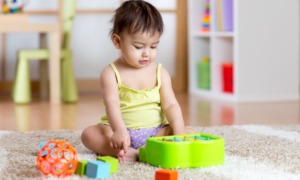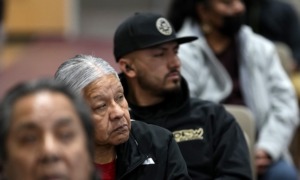By Jean Park, 15
LA Youth, Los Angeles
A few months ago, another student and I were doing homework together, and we both had math projects due the next day. He said to me, “Oh, you’re Asian. Can you finish this project for me?” I was annoyed, because I hear jokes all the time about Asians being smart at math.
At school, I’ve always had to put up with jokes about my culture. When I was little, some boys stretched their eyes to make them look Asian. Kids would always laugh. I started to believe that being Asian was a bad thing, and I didn’t want to be Korean.
I didn’t have pride in my Korean culture because I didn’t know a lot about it. I was born and raised in California, and I couldn’t speak Korean that well. When my family had Korean food for dinner, I didn’t know it was part of my culture. I just thought my mom liked really weird food, like octopus in a bowl of spicy soup.
When I was 9, the Korean national soccer team placed fourth during the 2002 World Cup. I was a little excited, but I still didn’t see being Korean as an important part of me. Throughout middle school, I still didn’t want to be Korean. One time, a friend looked at a guy I said was cute, scoffed, and said, “Eww, he’s Asian.”
I couldn’t find any reason to be proud of my culture. I tried ignoring the jokes.
During ninth grade, I got sidetracked one day while taking a break from homework. I hadn’t given my brother a gift for his birthday so I was Googling a holiday when I could give him a late present. I read about a Korean holiday called Chusok, which is like a Korean Thanksgiving. It’s a time when the Korean people thank their ancestors and family. During Chusok, houses are decorated with the mugunghwa, which is a flower representing the strength and perseverance of the Korean people. I was excited to learn about things I never knew. I saw a beautiful side of the Korean culture, rather than what other people see.
Since the holiday was coming up, I asked my parents if we could celebrate it at our house. They seemed doubtful, but agreed anyway. I bought traditional decorations and really tried to imitate how Chusok was celebrated. I got bright orange and red paper lanterns, and pictures that symbolized Korean history. To learn the dance performed during Chusok, I watched videos on YouTube and practiced the steps. I asked my grandma and my mother’s friends to make dishes to bring to our house.
On Chusok day, my brother and I hung the lanterns outside. My grandma made perfect rice and we bought 10 bouquets of mugunghwa. Friends and relatives gathered in my family’s living room and everyone in my family dressed in traditional Korean garments—rainbow-colored dresses for the women, and colorful pants and shirts for the guys. My grandma let me borrow her old traditional Korean dress, and my parents dug through closets for theirs. I’m not into dressing up, and my grandma isn’t either, but she told me that when she first put it on she felt like a queen. I felt the same way as she did.
To begin the celebration, my parents served soups, rice, a bowl of boiled octopus, kimchi (spicy pickled cabbage), and other dishes. I even took one little bite of the octopus because I was so into everything. We danced as my relatives played traditional upbeat Korean music on the drums. Everyone was laughing and having a good time. By midnight, everybody made a wish, as each person blew out a candle in the room. Chusok was over, but I will always remember it.
After the holiday, I knew that what people were saying at school wasn’t true. My culture seems more personal than it was before. It’s not just a label. I’m proud of the little things that we still have, even though we’re in America and not Korea. I don’t just have Korean heritage. I am Korean.
© 2009 L.A. Youth, the newspaper by and for Los Angeles teens, http://www.layouth.com.































